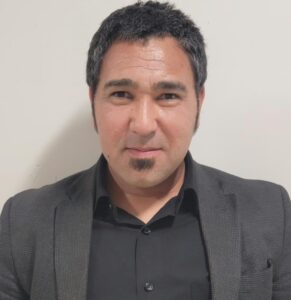
Kaya, Alaattin
Primary Appointment
Associate Professor, Biochemistry and Molecular Genetics
Education
- B.S., Biology, Dumlupinar University-Turkey
- M.Sc., Biotechnology, Izmir Institute of Technology-Turkey
- Ph.D., Biochemistry, University of Nebraska-Lincoln
- Postdoctoral Associate, Medicine/Genetics, Harvard Medical School
- Instructor, Medicine/Genetics, Harvard Medical School
Contact Information
1340 Jefferson Park Avenue, Pinn Hall Room 6228
Charlottesville, VA 22908
Email: qcc6zm@virginia.edu
Website: https://www.kayalab.org/
Research Disciplines
Biochemistry, Bioinformatics and Genomics, Biology, Computational Biology, Evolutionary Biology, Genetics, Molecular Biology, Molecular Pharmacology, Neuroscience
Research Interests
Metabolic and Genetic Regulation of Aging, Redox Biology, DNA Repair, Comparative and Functional Genomics, Stress Resistance, Drug Discovery, Evolutionary Biology, Synthetic and Systems Biology for Evolutionary Engineering, Adaptive Evolution, Mitochondrial Signaling, Neurodegenerative Diseases
Research Description
The research interests in the Kaya Lab lie in the mechanistic understanding of pathways regulating cellular aging and age-related disease progression. We believe that a strong understanding of biological problems is extremely important. Since aging is a complex and multifactorial process, we favor interdisciplinary and multi-model approaches, including biology, engineering, computer science, and medicine, to advance our research. This comprehensive approach allows us to delve deep into the complexities of aging, providing a more mechanistic understanding. We have incorporated the application of high-throughput technologies and computational sciences to molecular biology, as well as cell biology and biochemical approaches, in our research program. Studies on aging in model systems such as budding yeast, roundworms, mice, and recently primates have yielded novel insights into the aging process and revealed conserved regulation of lifespan in response to several pharmaceutical (e.g., rapamycin, metformin) and dietary interventions implicated in human longevity. Our lab utilizes several different model organisms to study aging, including budding yeast (S. cerevisiae), nematodes (C. elegans), tissue and cell culture models from different organisms (mouse, human, naked mole rat). We aim to integrate omics profiles across all models to better understand the nature of cellular, tissue, and organismal remodeling that leads to lifespan extension through various pharmaceutical and genetic interventions. Ultimately, our goal is to help delay and reverse aging and age-related pathologies. Briefly, our research program follows: i. Select Candidate Molecular Determinants of Aging: Identify genes, proteins, and metabolites through systems-level studies and screenings in invertebrate models. Generate hypotheses based on findings. ii. Validate Lifespan and Healthspan Extension: Characterize mechanistic models for selected gene/protein orthologs and metabolites/drugs using computational biology approaches. Identify associations with age-associated diseases such as cancer and neurodegeneration. iii. Translate Findings to Higher Models: Validate genes/metabolites conferring desired biological effects (e.g., lifespan and healthspan) in cell culture and mouse models. iv. Collaborate for Clinical Translation: Partner with gerontologists and medical doctors to translate promising interventions into clinical settings. Focus on evaluating shorter-term surrogate phenotypes, such as molecular markers (e.g., DNA methylation changes), or age-associated defects in humans, such as cognitive function (e.g., processing speed), physical capability (e.g., strength, locomotion), and physiological and metabolic health (e.g., cardiovascular function, glucose metabolism).
